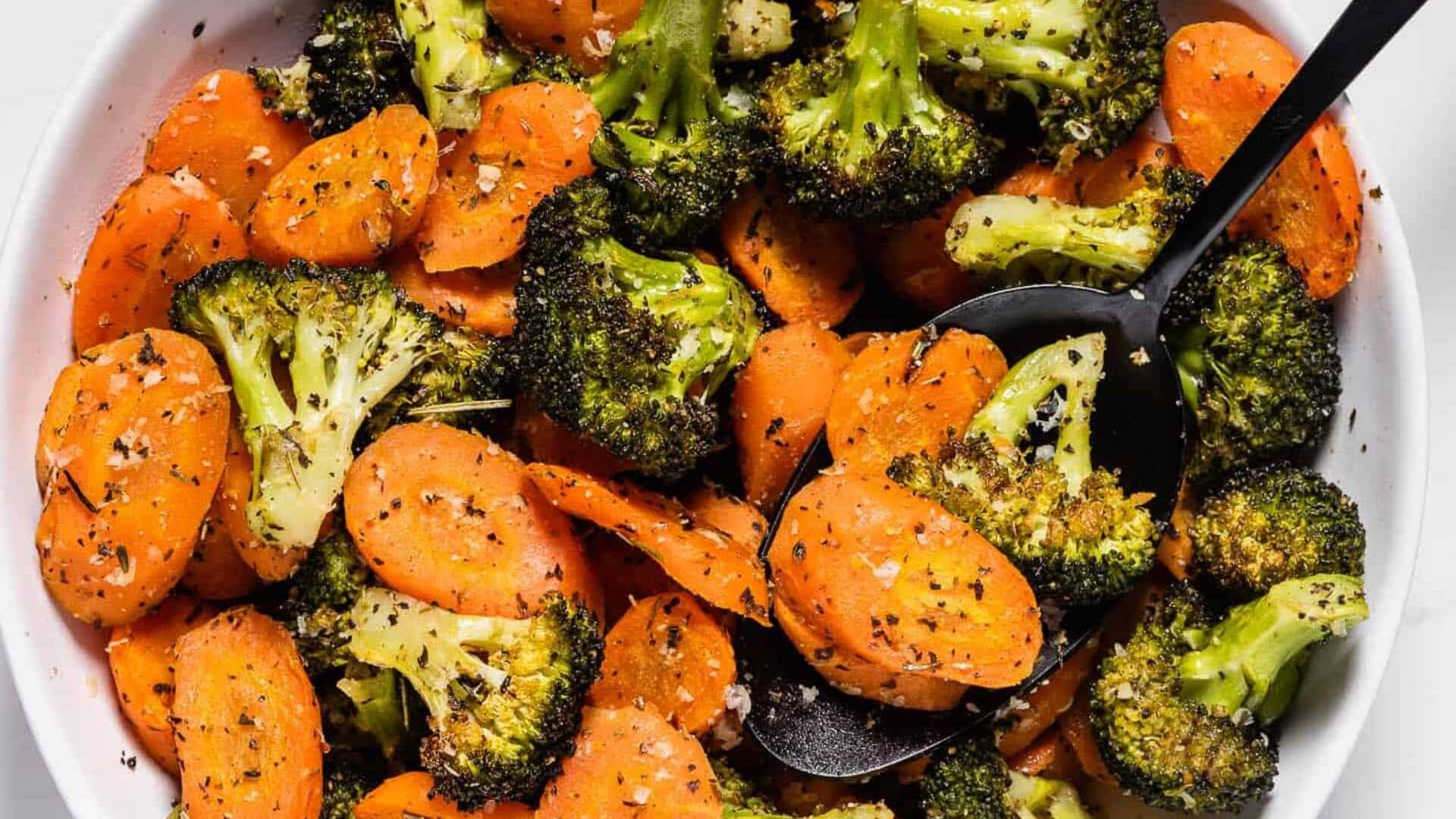
Broccoli v/s carrots: Comparing their vitamin and mineral content
What's the story
Broccoli and carrots are two of the most popular vegetables, known for their nutrition and health benefits. Both are packed with essential vitamins and minerals, making them a great addition to any diet. While broccoli is known for its high vitamin C content, carrots are famous for their beta-carotene. Let's examine the nutritional profiles of these vegetables to compare their vitamin and mineral content.
#1
Vitamin C content in broccoli
Broccoli is an excellent source of vitamin C, providing about 89 milligrams per 100 grams. This vitamin is essential for immune function, skin health, and antioxidant protection. The high vitamin C content in broccoli makes it an excellent choice for those looking to boost their immune system and protect cells from damage. Including broccoli in your diet can help meet daily vitamin C requirements effectively.
#2
Beta-carotene levels in carrots
Carrots are famous for their beta-carotene content, which is converted into vitamin A in the body. A 100-gram serving of carrots provides about 828 micrograms of beta-carotene. Vitamin A is essential for good vision, skin health, and proper functioning of the immune system. Carrots' high beta-carotene content makes them an excellent choice for anyone looking to improve their eyesight and overall health.
#3
Fiber content comparison
Both broccoli and carrots provide a good amount of dietary fiber, which is essential for digestive health. Broccoli has about 2.6 grams of fiber per 100 grams, while carrots have about 2.8 grams in the same serving size. Fiber helps keep bowel movements regular and may lower the risk of developing digestive disorders over time. Adding either vegetable to your meals can help you meet your daily fiber needs.
#4
Mineral richness: Calcium & Potassium
Broccoli also provides calcium (47 milligrams per 100 grams), which helps keep bones strong, along with potassium (316 milligrams), which helps regulate blood pressure levels. Carrots also provide potassium (322 milligrams) but are not as rich in calcium as broccoli. Both vegetables are great sources of these minerals, serving different dietary needs depending on individual preferences or nutritional requirements.